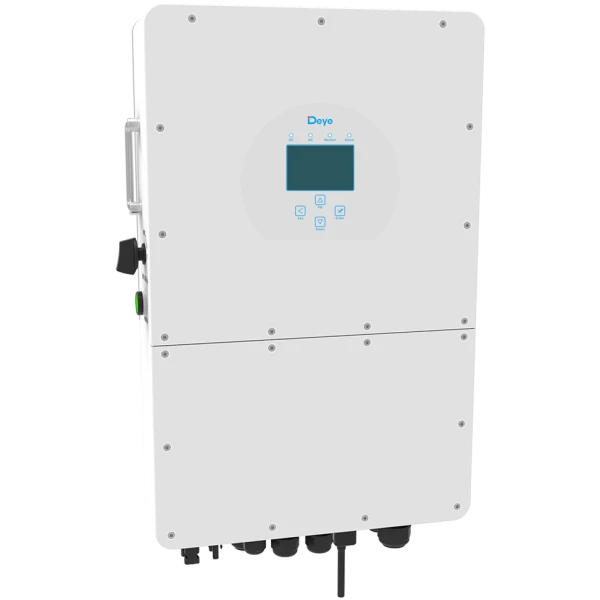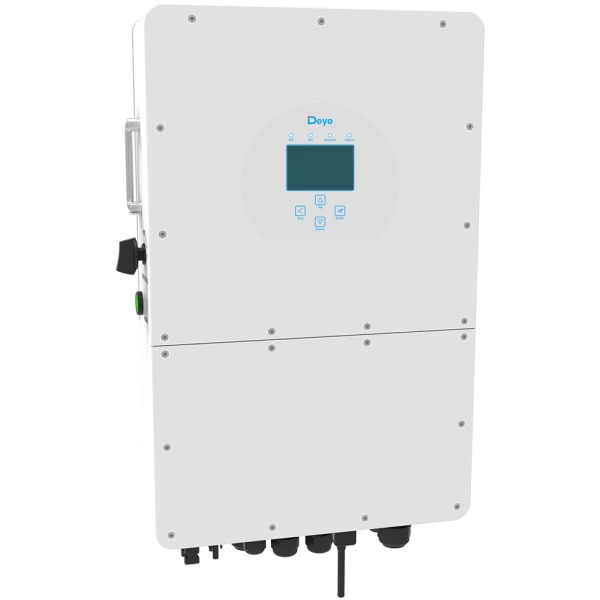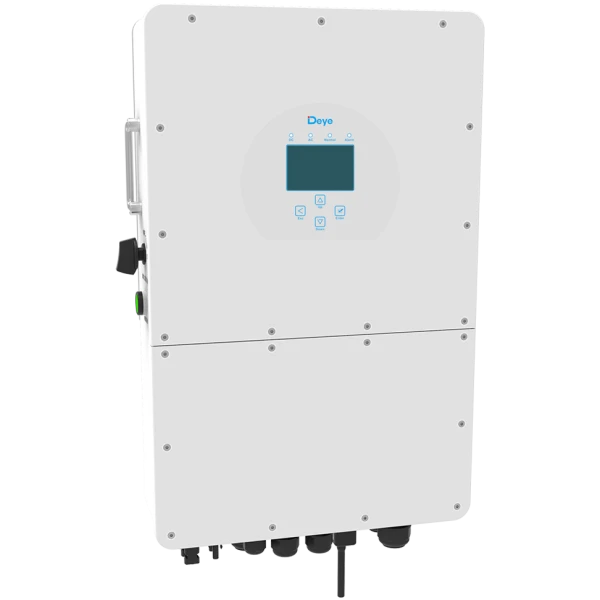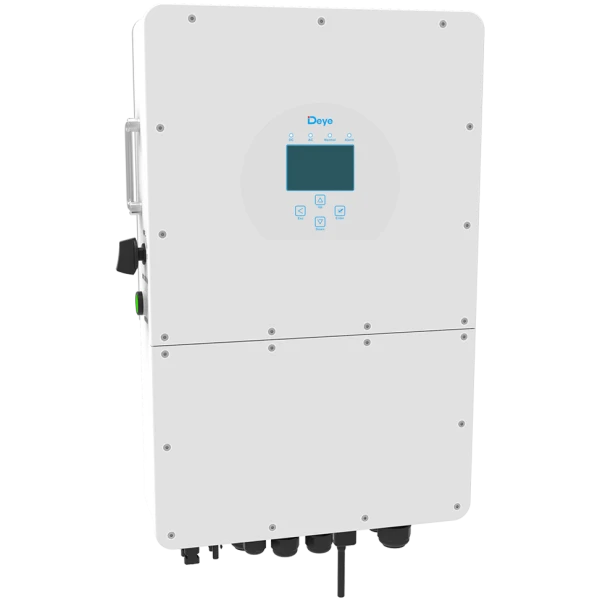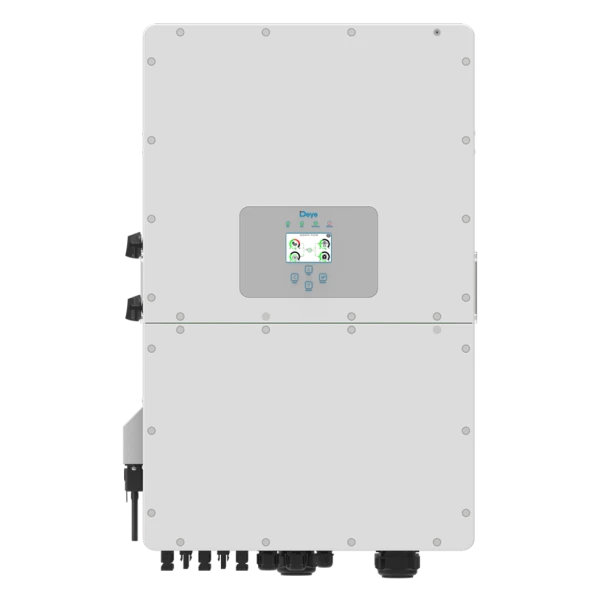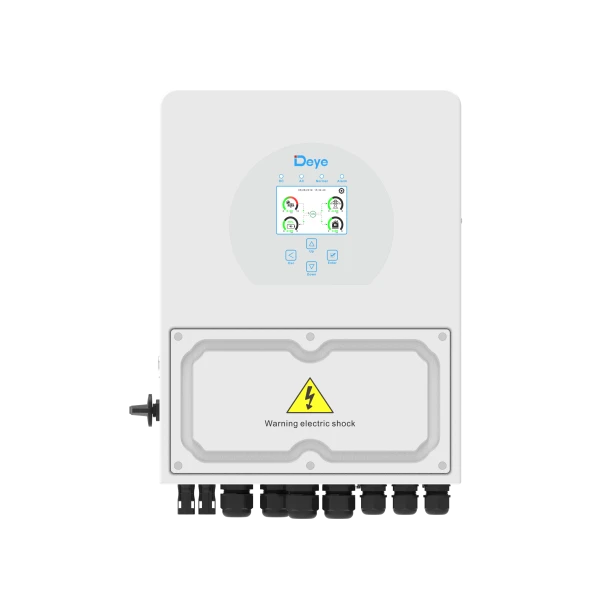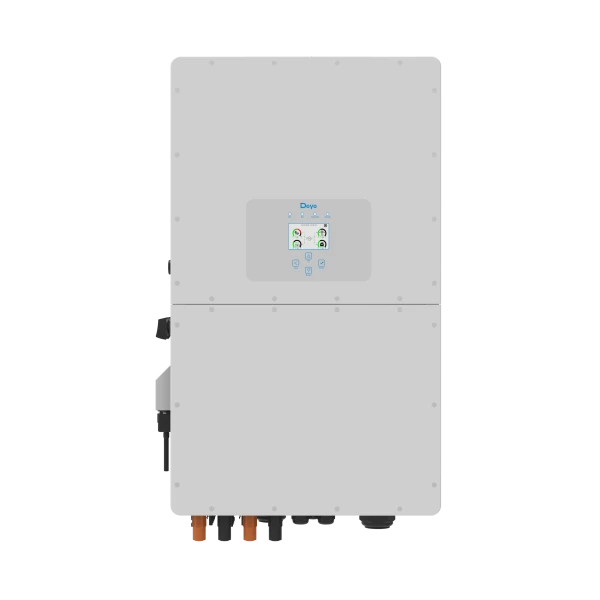Deye inverters
Discover the Range of Energy-Efficient Deye Solar Inverter Models!
Are you interested in making your solar system more efficient?
Deye inverters are an excellent choice for anyone seeking a reliable and innovative solution for energy conversion.
Did you know that Deye inverters stand out for their cutting-edge technologies?
Deye inverters come equipped with intelligent energy distribution functionality, ensuring energy-efficient operation even when simultaneously managing multiple energy sources or energy storage systems. Additionally, they feature excellent overheating protection, making them a reliable long-term choice.
Why choose Deye inverters?
Deye inverters stand out in the market due to their numerous innovations, which enable the system to be perfectly tailored to the unique needs of users. With their intelligent monitoring platform, the system's operation can be easily tracked and managed, including remote shutdown and parameter adjustments, further enhancing convenience and efficiency.
Explore our selection!
Browse the wide range of Deye inverters and find the model that best meets your needs. Sustainable and efficient energy usage is now easily within reach.
As a reseller, installer, or wholesale partner, please register on our B2B webshop before your first inverter purchase! Once your registration has been confirmed, you can log into our B2B webshop, where you will always find up-to-date information on prices, stock availability, and current promotions. After logging into the webshop, purchasing or ordering inverters online is quick and simple.
Do you have questions about our products?
As a B2B partner, please contact your designated sales representative, where our colleagues will be happy to assist you and answer all your questions regarding the chosen inverter.
You can also find plenty of helpful information in the frequently asked questions below:
How compatible are Deye inverters with other systems?
Deye inverters offer highly flexible solutions and are compatible with a wide variety of systems. They can be used with single-phase and three-phase networks and work seamlessly with various energy storage systems, including lithium-ion and lead-acid batteries. Additionally, they can be easily integrated into existing solar systems, making them an ideal choice for system expansion or upgrades.
How do Deye hybrid inverters work?
Hybrid inverters can simultaneously manage electricity generated from solar energy, power drawn from the grid, and the charging and discharging of batteries. Thanks to smart settings, a hybrid system can help minimize energy costs.
What warranty comes with Deye inverters?
Deye inverters typically come with a 10-year manufacturer warranty, ensuring long-lasting and reliable performance.
What level of efficiency do these inverters operate at?
Deye inverters operate with outstanding efficiency, achieving up to 98% energy conversion efficiency. This minimizes energy loss. Thanks to intelligent energy distribution technology, the inverters optimize system performance, ensuring the maximum utilization of solar energy. This not only increases system reliability but also significantly reduces energy costs.
What maintenance do these inverters require?
Deye inverters require minimal maintenance. The intelligent monitoring platform continuously monitors the system's status, allowing potential issues to be detected in time before they cause significant problems. It is recommended to have the solar system and Deye inverters inspected by a professional once a year.
Deye Inverter Reviews and Recommendations by SOLARKIT Experts
According to SOLARKIT experts, Deye inverters offer the perfect combination of efficiency, and modern technology. They are easy to install, and their compact design provides a space-saving solution.The hybrid operation enables flexible energy usage, whether for grid-tied, hybrid, or off-grid systems. With intelligent energy distribution and remote control functionality, Deye inverters deliver exceptional value for money.These features, along with their robust construction and long warranty period, make them an ideal choice for both residential and commercial users.

